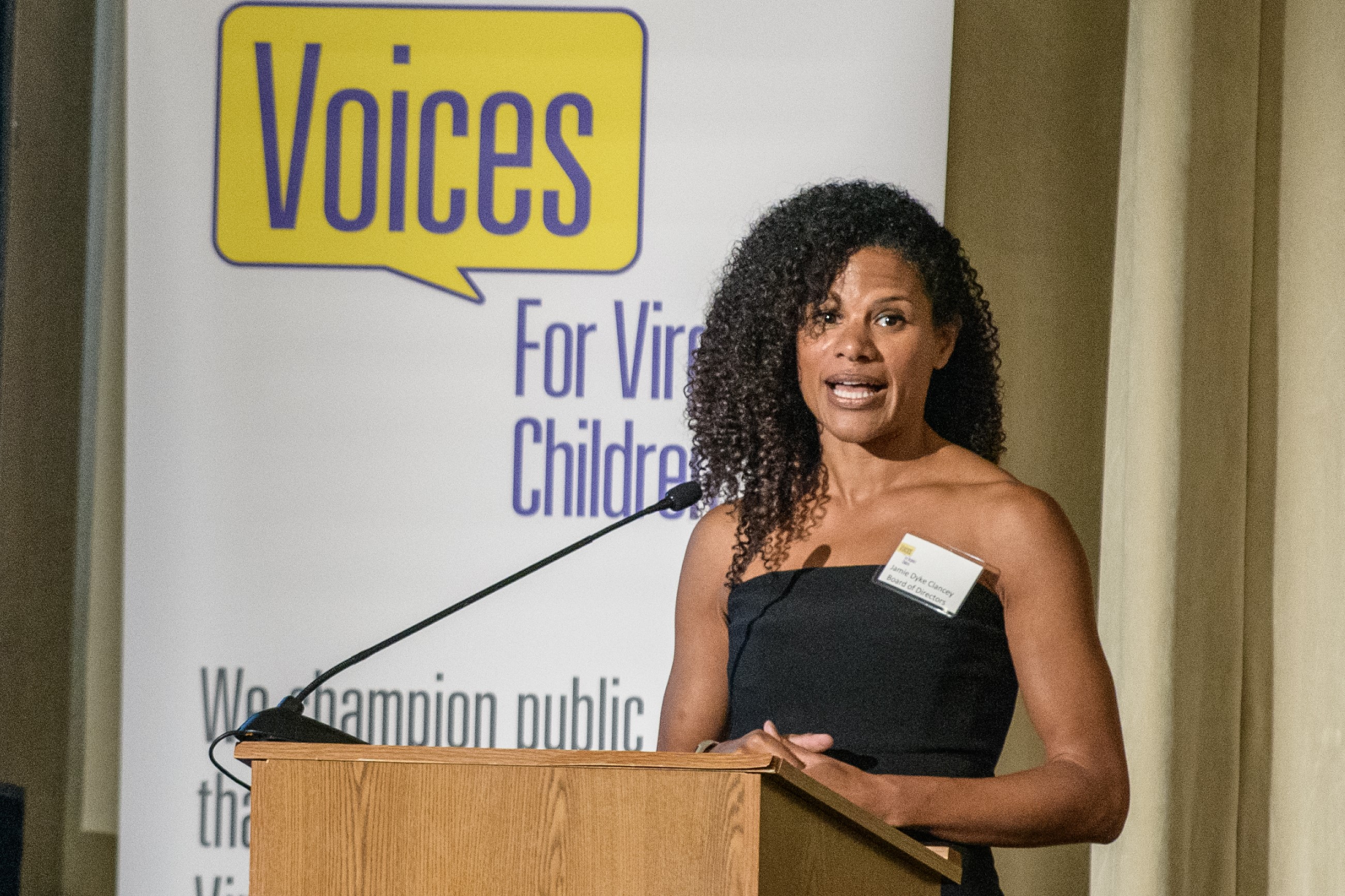

Many Americans think of public policy as an abstract concept with little relevance to their daily lives. Not so Jamie Clancey. She sees the effects of public policy everywhere in her life and in the lives of her clients.
The immediate past president of the board of Voices for Virginia’s Children and current Voices board member, Jamie is a licensed clinical social worker who coordinates long-term services and support for Medicaid patients in Culpeper, Va. In addition, she counsels children, teens, and adults in her private practice on a part-time basis.
“I work in the community with individuals of all ages, so I get to see how decisions made at the state level trickle down to impact people’s day-to-day lives,” Jamie says. She credits her father, former Virginia secretary of education Jim Dyke, for sharing with her his passion for making change at the policy level.
Drawn to Voices for its public policy advocacy on behalf of Virginia’s children, Jamie joined the board in 2011. “Voices prioritizes what is best for kids,” Jamie says. “There’s no left-wing or right-wing agenda—just what’s best for kids.”
Voices’ work on trauma-informed policy resonates particularly strongly with Jamie, given her social work background. “I see families all the time that have experienced trauma,” Jamie says.
“Many times, parents will ask for help ‘fixing’ their children. But sometimes parents need the same kind of help their children need. At the heart of trauma-informed care is self-awareness—how people respond when they are triggered. If you can help a parent or caregiver respond better to their stress triggers, they can then help their children. The goal is to break the cycle of trauma that sometimes perpetuates through families.”
This is where good public policy comes in, Jamie says. “We see the end results of chronic stress in the heroin epidemic, in the foster care system, in the school-to-prison pipeline. These are all issues Voices works on.
“We need to shift the narrative from an exclusive focus on treating mental health issues to include a narrative that considers how we prevent trauma in the first place. If you want to create change, you have to look at policies that would move people beyond the fight-or-flight mentality associated with trauma.”
During the 2018 General Assembly session, Voices and its trauma-informed community network (TICN) partners across the state advocated for the creation of a workgroup that would define trauma-informed practices across state agencies. Both the House and Senate budgets currently under discussion include funding for trauma-informed proposals.
Meanwhile, Jamie is doing her part to advocate for trauma-informed care on the regional and local levels. She worked with other providers to create the Greater Piedmont Trauma Informed Community Network, one of at least nine TICNs statewide. “We train people on the impact of trauma on the developing brain,” Jamie says. “We want to prevent trauma, but if it does occur, we want to train people on how to build resilience.”
As a member of the Culpeper Town Council, Jamie also strives to create and implement sound local public policies. “It’s important for elected officials who make decisions about how to spend our tax dollars to understand how their decisions impact people day-to-day,” she says. “Some decision makers are very disconnected from the people they represent. They need to understand that if people have better resources, they might make better decisions.”
Like Voices, Jamie works hard to understand a community’s needs and relies on data to inform her advocacy for public policies that create better outcomes for Virginia’s children and families.
For additional information on our 2018 trauma-informed policy recommendations, check out Voices’ trauma-informed infographic and talking points handout.
Read More Blog Posts